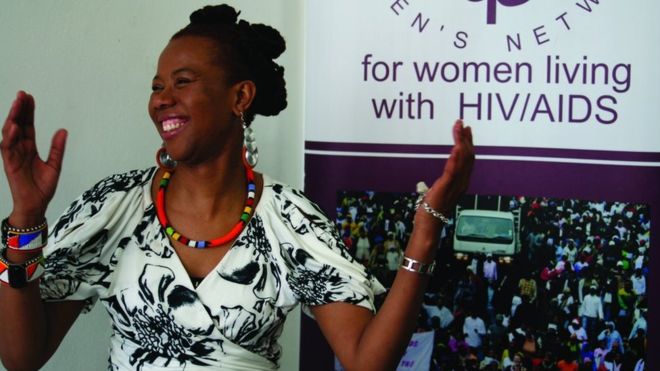Beauty and Health
Prudence Mabele: The life of the South African HIV campaigner
Prudence Mabele’s decision to become one of the first black South African women to declare her HIV-positive status was the start of a lifetime’s campaigning.
It was 1992, and the stigma which came with such an announcement cannot be underestimated.
But Mabele was determined to be brave, and to encourage others to live without shame.
That bravery and determination would become the hallmark of Mabele’s next 25 years, and would, when she died earlier this month, see her hailed as “a global icon” and “a true South African hero”.
Stigma
Mabele was born in Benoni, just east of Johannesburg, in 1971, just one woman in a long line of activists, according to friends.
She was just 18 when she contracted HIV in 1990 but a search for a friend to share her fears and hopes with over this new diagnosis reportedly only led her to hospital wards filled with dying babies.
In 1992, South Africa’s HIV epidemic was in its infancy. The proportion of 15 to 49-year-olds infected was just 2.5%, according to the World Bank, and it was still largely seen as a disease which affected gay men.
And yet, here was a bright, young university student, revealing she too had been infected. It was just the start of a fight which would see her not only battle prejudice, but her own government.
“When you think about how she had to confront this pandemic in 1992, how she had to go through the time when often times in South Africa, they didn’t acknowledge that HIV was the cause of the pandemic — yet she was that voice,” Deborah Birx, the US global Aids coordinator, told American news site PRI.
“And we should all be asking the question: ‘Would we be willing to make that same personal sacrifice?'”
Over the next few years, she threw herself into trying to break the silence around HIV status, founding organisations like the Positive Women’s Network in 1996.
At the same time, the numbers infected with HIV/Aids in South Africa continued to soar: by 1998, 2,900,000 were thought to be infected, equating to 15.1% of the adult population.
But there were also developments when it came to treatment: the first anti-retrovirals went on to the market in the latter half of the 1990s, and ensuring people had access to them became one of Mabele’s key causes.
At the time, they cost 7,000 rand (£415/$541) a month, Mabele said later in interviews. It was too expensive, out of reach of many of those infected.
As a result, the Treatment Action Campaign (TAC) was founded – and once again, Mabele was at its heart.
Aids denialism
But then, in 2000 when some 1,500 people were being infected every day, things took an unexpected turn: President Thabo Mbeki declared that while he could accept that HIV contributed to the collapse of the immune system, it was not the only cause. Other factors like poverty and poor nutrition were also involved, he said.
“A virus cannot cause a syndrome,” Mr Mbeki told parliament. “A virus can cause a disease, and Aids is not a disease, it is a syndrome.”
Suddenly, the fight was not just for funding. It was against the government, and its new “Aids denialism”.
It was up to the TAC, and women like Mabele, to fight when the government delayed the roll out of ARVs to pregnant mothers, which would stop the transfer of …
Please read original article – Prudence Mabele: The life of the South African HIV campaigner
























